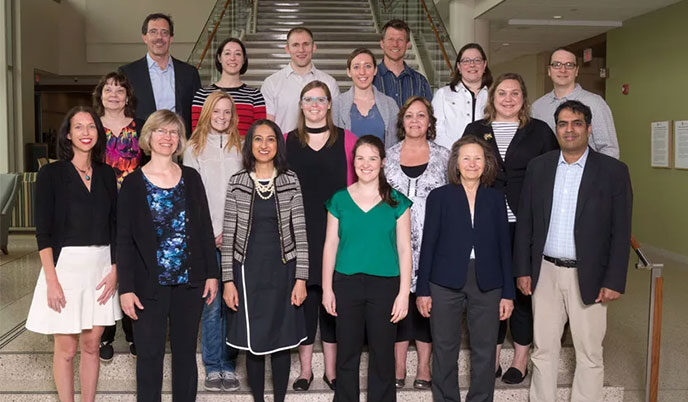
Researchers one step closer to learning how calorie restriction extends lifespan in animals
A multidisciplinary research team at the University of Wisconsin–Madison has uncovered new clues about calorie restriction and how it works to delay aging and age-related diseases.

Allan Brasier to lead Institute for Clinical and Translational Research
The University of Wisconsin–Madison has recruited a leading physician-scientist to direct its Institute for Clinical and Translational Research (ICTR) after the founding leader retires.

Study provides a potential therapeutic strategy for aggressive lymphoma
Researchers at the University of Wisconsin School of Medicine and Public Health have found a molecular regulator that controls cell life in diffuse large B cell lymphoma, the most common, aggressive form of lymphoma.

Study: Diet limiting specific amino acids may be key to weight loss
A new study in mice has suggested that counting calories might not be the only way to improve humans’ metabolic health. Researchers at the University of Wisconsin-Madison, in a study published today in The Journal of Physiology, found lowering the consumption of specific types of amino acids (the building blocks of protein) called branched-chain amino acids (BCAAs) improved metabolic health, even when overall calories were not reduced.

UW–Madison and VA study veterans and Alzheimer’s disease
More than five million Americans are living with Alzheimer’s disease and experts expect that number to triple by 2050. And veterans face a higher risk than the general population.

Wisconsin Alzheimer’s Disease Research Center launches podcasts
“Dementia Matters” podcasts that offer basic information about Alzheimer’s disease are now available from the University of Wisconsin School of Medicine and Public Health.

UW Carbone Cancer Center researchers win two national prostate cancer awards
UW Carbone Cancer Center researchers won two of the six national Challenge Awards announced this week by the Prostate Cancer Foundation and the Movember Foundation.

Jeniel Nett awarded funding for research to combat medical device biofilms

Investigators are tracking America’s deadliest killer: Tobacco addiction
Mike Eheler didn’t want to die and leave his wife and four kids without him. Like most smokers, he became addicted as a kid. He had smoked for 23 years, his grandmother had died from lung cancer, and now he could feel the toll on his health — and on his ability to support his family in the way he’d dreamed. It was slipping away, one $7 pack of carcinogens at a time.

New line of population health research takes guts
“You know, if you’re going to poop anyway, you might as well get paid for it!”

Poor sleep linked to multiple brain changes associated with Alzheimer’s disease
An international team of researchers led by scientists at the University of Wisconsin–Madison found that people who experienced poor sleep in late midlife also had brain characteristics that point to an increased risk for developing Alzheimer’s disease.

Aly Wolff’s dream lives on with new clinical trial
Aly Wolff died of neuroendocrine cancer on April 22, 2013, however her courageous battle continues. Today, three years later, a new clinical trial at the University of Wisconsin Carbone Cancer Center has been approved and holds great promise in offering a new line of treatment for those with neuroendocrine tumors.